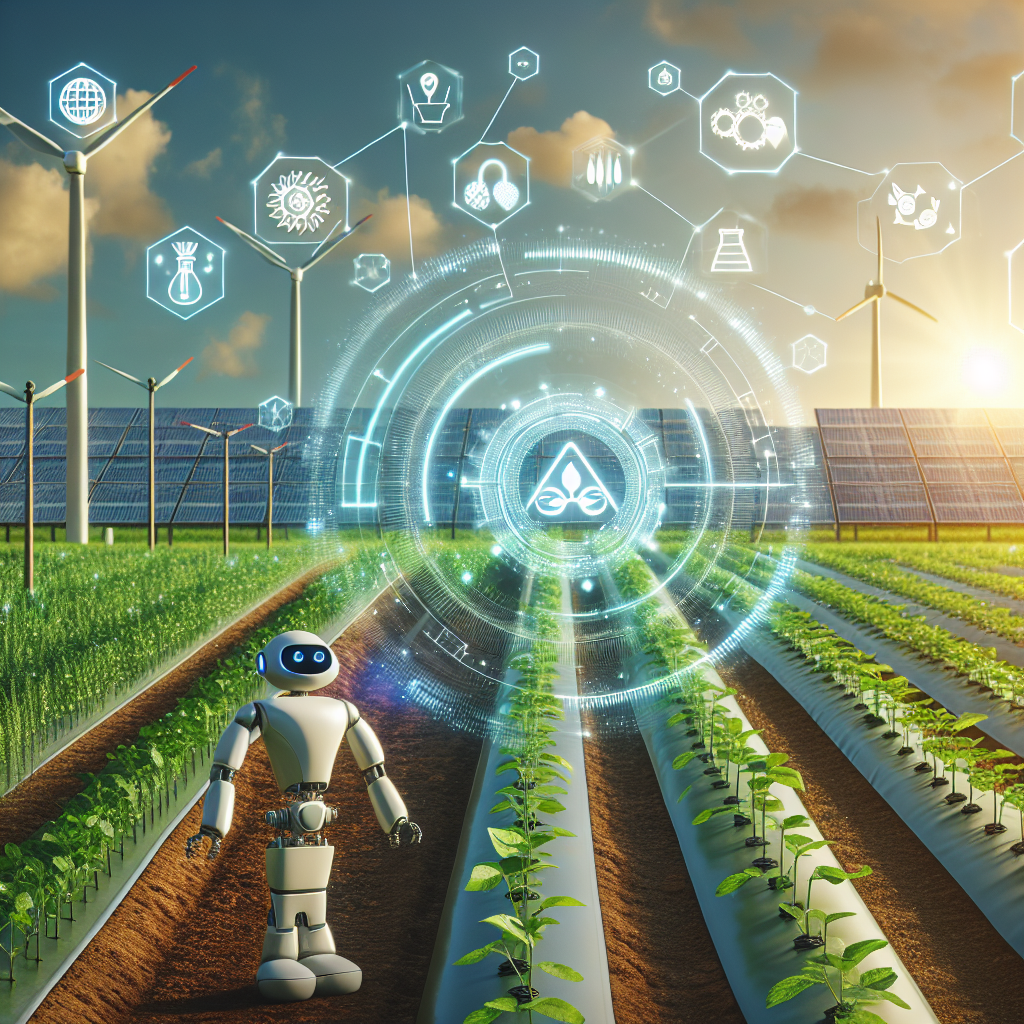Implementing AI for Sustainable Agriculture Certification
In recent years, the agricultural industry has been facing increasing pressure to adopt sustainable practices in order to protect the environment and ensure long-term food security. One way to incentivize and monitor sustainable practices in agriculture is through certification programs. These programs provide recognition to farmers who adhere to certain standards of sustainability, such as using environmentally-friendly farming techniques, conserving natural resources, and promoting biodiversity.
However, the current process of certifying sustainable agriculture practices can be time-consuming, costly, and subject to human error. This is where artificial intelligence (AI) comes in. By leveraging AI technology, we can streamline the certification process, improve accuracy, and make it more accessible to farmers around the world.
AI technology can be used in various ways to enhance sustainable agriculture certification. One of the key applications of AI in this field is data analysis. AI algorithms can process large amounts of data collected from farms, such as satellite imagery, sensor data, and weather information, to identify patterns and trends that indicate sustainable practices. For example, AI can analyze satellite images to detect deforestation, monitor soil health, and track water usage, all of which are important factors in sustainable agriculture certification.
Another important application of AI in sustainable agriculture certification is predictive modeling. By using machine learning algorithms, we can predict the impact of different farming practices on the environment and assess their sustainability. This can help farmers make informed decisions about their farming practices and adjust them to meet certification standards.
Furthermore, AI can also be used to automate the certification process itself. By developing AI-powered certification systems, we can reduce the administrative burden on certification bodies and make the process more efficient for farmers. For example, AI can verify compliance with certification standards by analyzing data from sensors and other sources in real-time, reducing the need for manual inspections.
Overall, implementing AI for sustainable agriculture certification has the potential to revolutionize the way we monitor and incentivize sustainable farming practices. By harnessing the power of AI technology, we can make certification more accurate, efficient, and accessible to farmers worldwide.
FAQs
Q: How does AI technology help in monitoring sustainable agriculture practices?
A: AI technology can analyze data from various sources, such as satellite imagery and sensor data, to identify patterns and trends that indicate sustainable practices. This helps in monitoring factors such as deforestation, soil health, and water usage, which are important for sustainable agriculture certification.
Q: Can AI predict the impact of different farming practices on the environment?
A: Yes, AI can be used to develop predictive models that assess the sustainability of different farming practices. By analyzing data and using machine learning algorithms, AI can predict the environmental impact of farming practices and help farmers make informed decisions.
Q: How can AI automate the certification process?
A: AI-powered certification systems can verify compliance with certification standards by analyzing data from sensors and other sources in real-time. This reduces the need for manual inspections and streamlines the certification process for farmers.
Q: What are the benefits of implementing AI for sustainable agriculture certification?
A: Implementing AI for sustainable agriculture certification can improve accuracy, efficiency, and accessibility of the certification process. It can help farmers adhere to sustainable practices, protect the environment, and ensure long-term food security.

